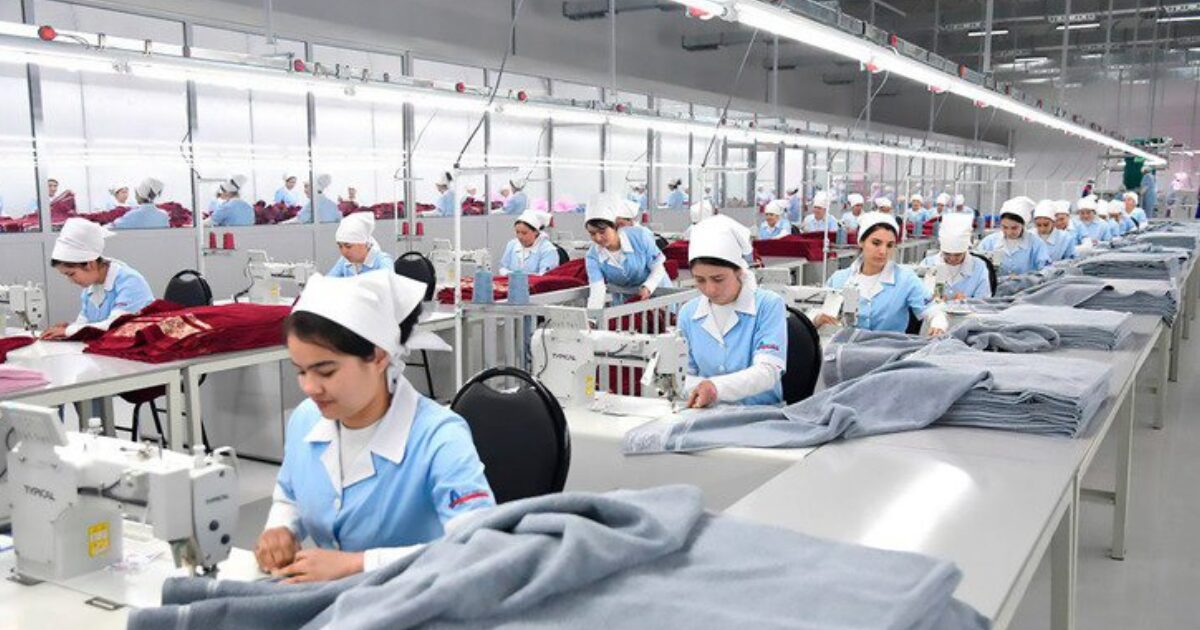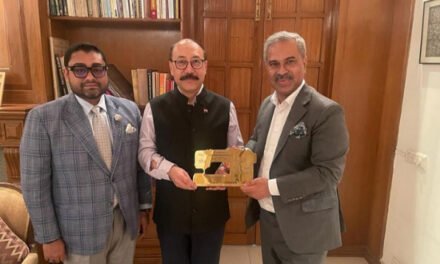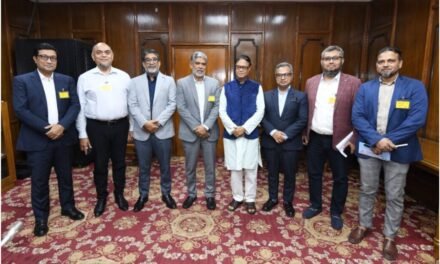 Uzbekistan is setting the stage for a significant leap in its textile industry, aiming to double its exports to $6.5bn by 2026. This ambitious target reflects the country’s commitment to becoming a major player in the global textile market, leveraging both its rich cotton heritage and strategic foreign investments.
Uzbekistan is setting the stage for a significant leap in its textile industry, aiming to double its exports to $6.5bn by 2026. This ambitious target reflects the country’s commitment to becoming a major player in the global textile market, leveraging both its rich cotton heritage and strategic foreign investments.
Abdulaziz Abudrakhimov, Uztekstilprom’s Press Secretary, provided insights into the country’s roadmap for achieving these goals. “Our strategy involves expanding into new markets and deepening our integration into global supply chains,” Abudrakhimov explained. “With support from international organizations like ITMF (International Textiles Manufacturers Federation) and IAF (International Apparel Federation), we’re inviting more global brands to establish a presence in Uzbekistan, which is crucial for scaling our export capacity.”
Expansion Driven by Foreign Investment and New Markets
Uzbekistan’s textile industry is seeing a surge in foreign investment, with several international companies setting up operations within the country. For instance, an Italian brand has recently established a factory in the Kashkadarya region, and two German companies have also begun operations. These investments are expected to significantly boost production and export capacity.
According to Abudrakhimov, Uzbekistan is proactively engaging with international markets through regular business missions. “We have ongoing missions to countries like China and several European nations. These efforts are critical in securing new markets and ensuring that Uzbekistan’s textile products reach a broader audience,” he noted. Abudrakhimov emphasized that by 2026, Uzbekistan’s export figures are projected to double compared to those in 2023 ($3.5bn). This growth will be driven not only by an increase in volume but also by a shift towards higher-value products. “While cotton remains at the core of our exports, we are increasingly moving towards exporting fabrics and ready-made garments such as t-shirts, trousers, and jeans,” he said. “These products are gaining popularity, especially in Europe, where Uzbek cotton is recognized as one of the best in the world.”
Product Diversification and Value-Addition
Uzbekistan, traditionally known for its high-quality cotton, is diversifying its textile product offerings. “Most of our exports have historically been cotton-based, including yarn,” Abudrakhimov explained. “However, we’re reducing our reliance on raw cotton exports and shifting towards finished products like fabrics and garments. This transition is essential for adding value and increasing revenue.”Abudrakhimov pointed out that ready-made garments are becoming increasingly popular in export markets, particularly in Europe, where Uzbek textiles are well-regarded for their quality.
In a comment to CAITME independent international expert Bakhtiyor Alimjanov, said that Uzbekistan can compete with China in Russia’s market following the exit many global brands at the outbreak of the War with Ukraine. Alimjanov emphasized that “Uzbekistan needs to develop its own brands, its own high-quality production, and not only sew by order of foreign companies. We have several major brands in the country, but they have not yet been put on stream. Foreign tourists buy, of course, but we have to produce it in large volumes and export it under our name.”
Samarkand to Showcase Uzbekistan’s Textile Industry at Global Conference
To further solidify its position in the global textile industry, Uzbekistan will host the largest textile and fashion event in the world for the first time. From September 8-10, 2024, Samarkand will be the venue for the ITMF Annual Conference & IAF World Fashion Convention. This event, organized in collaboration with the Uztekstilprom Association, is expected to draw over 500 industry professionals from around the world. This is also the first time that ITMF and IAF have collaborated on any event in their history of operation.
The conference, themed “Innovation, cooperation, and regulation are the driving forces of the textile and clothing industry,” will address critical issues such as artificial intelligence, digitalization of production, international regulation, sustainable development, and supply chain optimization. Key industry leaders, including those from the American Apparel and Footwear Industry and the European Confederation of Apparel and Textiles, will share their insights.
In addition to the conference sessions, attendees will have the opportunity to tour local factories in Samarkand on September 10. This includes visits to prominent textile companies like Zarafshan Textile and Samarkand Apparel, which are already recognized for their quality products on the international stage. The event will also feature a cultural tour of Bukhara and a visit to the Central Asia Textile Machinery Exhibition (Keitme) in Tashkent, where participants can explore the latest advancements in textile machinery.
Uzbekistan’s hosting of this prestigious event underscores its growing importance in the global textile supply chain and highlights the country’s commitment to achieving its ambitious export targets.





















